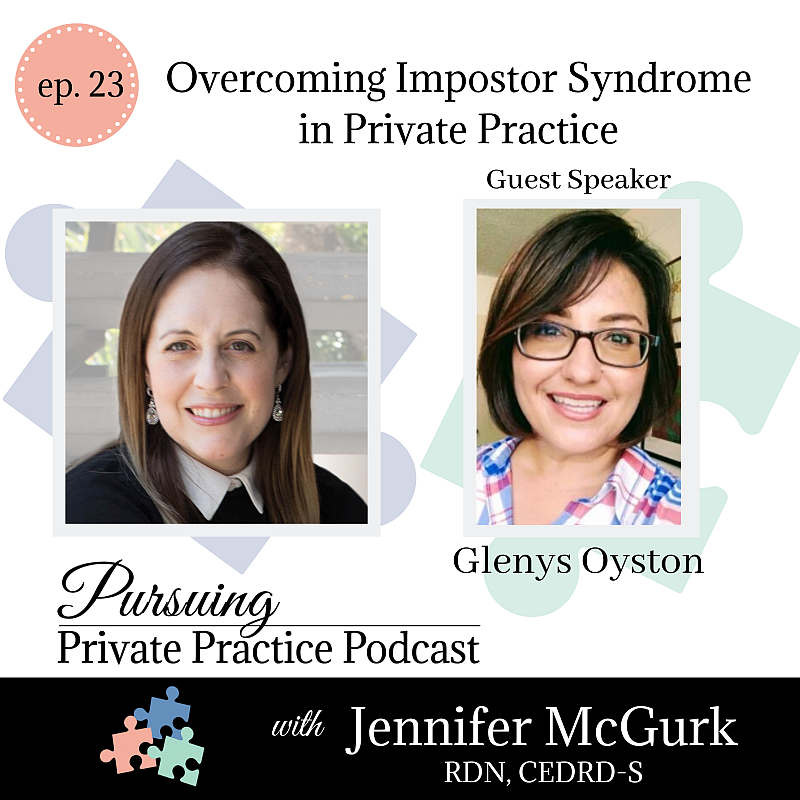Podcast
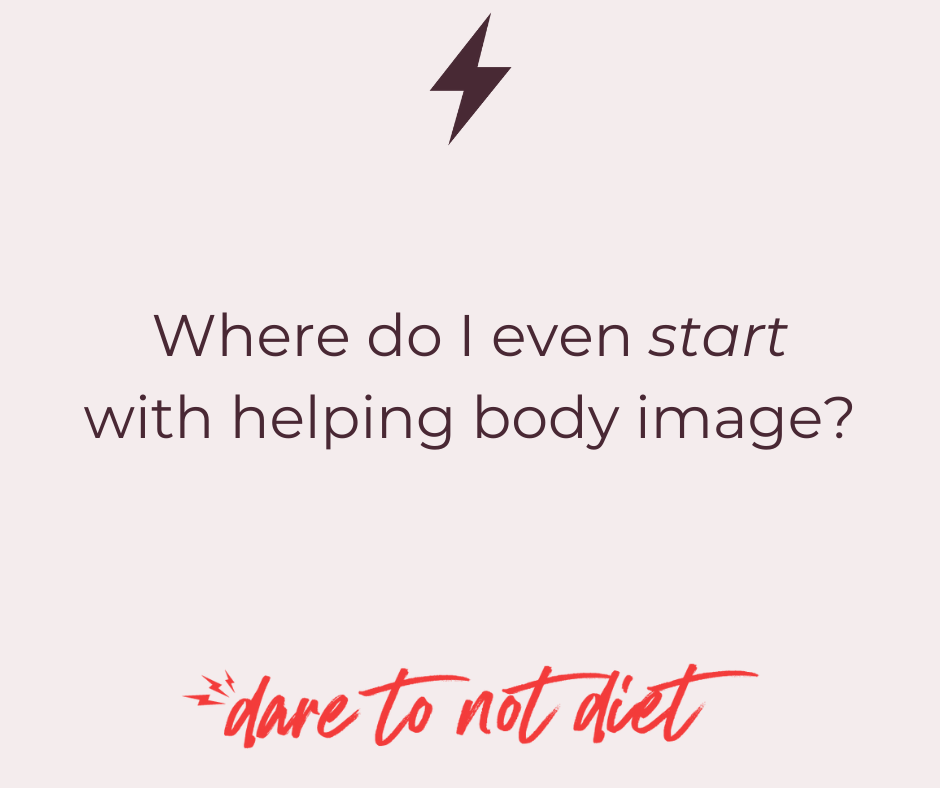
This is just a quick PSA to say that improving your body image is possible.
(even when it feels like it isn’t)
It is not easy.
It takes undoing harmful beliefs and learning new tools.
It means realignment from needing to like how your body looks to knowing your body IS good.
It takes practice. Sooo much practice.
You don’t have to know everything to start. Here are some low-hanging fruit ideas to get you going:
- Listen to fat-positive podcasts (like Dietitians Unplugged!).
- Read fat-positive books about body image.
- Follow anti-diet and fat-positive social media accounts (there are sooo many).
If I were to pick one resource that would be super helpful right now, I’d say this podcast we did with Kristina Bruce about challenging unhelpful beliefs is at the top of the list.
I also recently created a guide with some simple practices that can help get you on your way: 6 Quick Strategies to Improve Your Body Image Now.
With practice and a ton of self-compassion, body image healing is possible.
Podcast
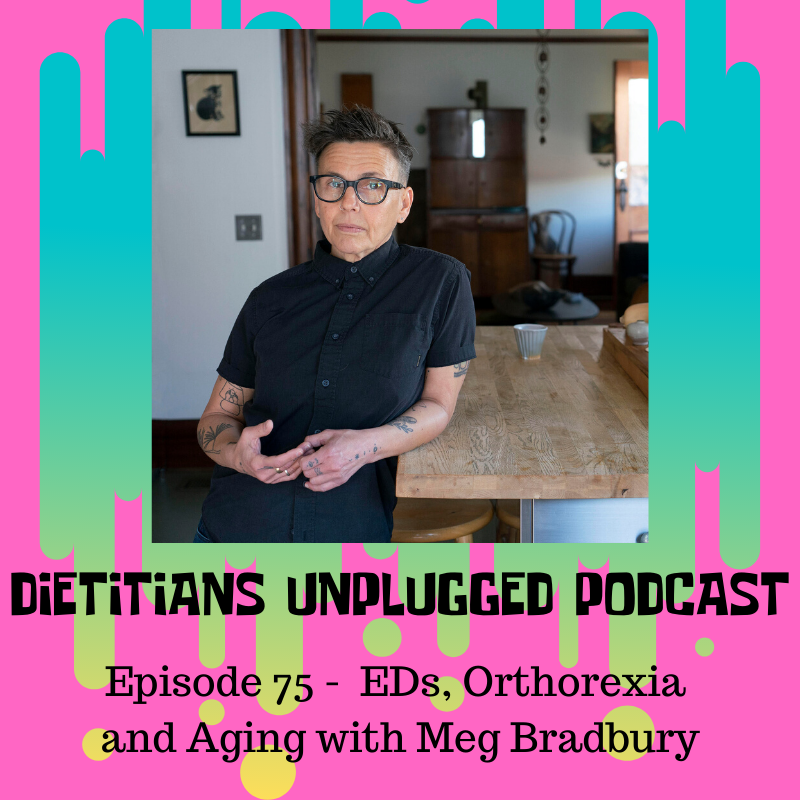
When we think of eating disorders, we so often imagine someone who is younger and struggling. After all, aren’t we supposed to have our lives completely figured out by the age of 35?! (spoiler alert: no)
Meg Bradbury joined us in this Dietitians Unplugged podcast episode to discuss her experience of having an eating disorder and orthorexia as an older person.
Meg Bradbury is a Certified Body Trust Provider®, anti-diet nutritionist, Accessible Yoga® Teacher, and registered Yoga Alliance yoga and meditation teacher. Meg is in private practice working with individuals, groups, and families, advocating for body acceptance, eating disorder/disordered eating/body shame recovery, freedom with food, joyful movement, and stillness/breathwork. She also co-leads the Elderqueer project, an online gathering space for 40+ queers to connect and build community through conversations about aging in body, relationships, emotions, transitions, trust, and cultural relevance. Meg’s practice is fat positive, weight neutral, and LGBTQIA+ affirming.
In this episode, we discussed:
- Meg’s experience of developing an eating disorder
- What is orthorexia, and how it took over her life
- Why orthorexia has become so pervasive in our culture
- The effects of aging on eating disorders
- The tyranny of the anti-aging industrial complex
- Using breath and yoga to connect with the body
Like our podcast?
Make sure to subscribe on Apple podcasts (or wherever you listen to podcasts) and leave us a review. This helps to spread the non-diet love far and wide.
Subscribe and get my free guide:
Why you overeat …and what to do about it
Click here if you just want my newsletter!
Podcast
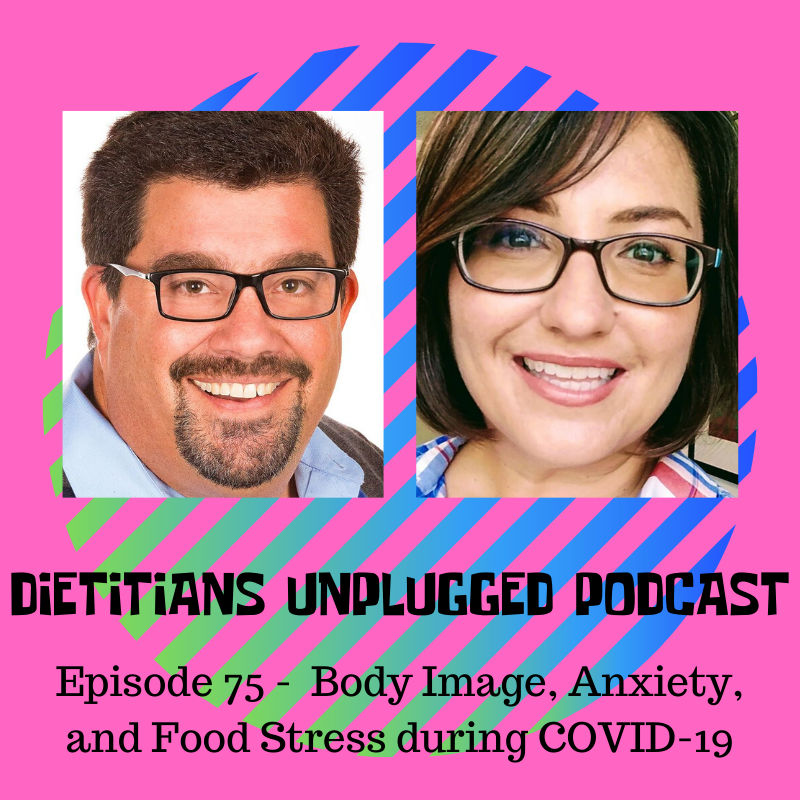
Aaron and I reached out to you from home during the global COVID-19 pandemic in this episode of the Dietitians Unplugged podcast. This is clearly a time of stress and fear for everyone, and it can really bring up a lot of distress around body image, food insecurity and scarcity, and eating in general.
In this episode we discussed:
- Our personal experiences of navigating scarcity at the grocery stores and the emotional roller coaster we’ve both been on
- The hard work and ingenuity our clients and so many others are putting into their healing while stuck at home
- The uptick in body image issues and how many of us use worries about food and body as a way to control anxiety and distract from bigger worries
- Dealing with anxiety and difficult feelings during this time
- How we can use this time to feel better about our bodies
- How some people actually find themselves thriving in the slowed pace
- How diet culture doesn’t go away even in extreme times of uncertainty and worry
Show Notes:
Virtual meal support on Instagram: @covid19eatingsupport
Article: Why You Should Ignore All That Coronavirus-Inspired Productivity Pressure – great advice for dealing with traumatic times
Headspace is offering free support during the global pandemic
Other meditation apps: Insight Timer, Calm
Listen on:
Subscribe and get my free guide:
Why you overeat …and what to do about it
Click here if you just want my newsletter!
Podcast
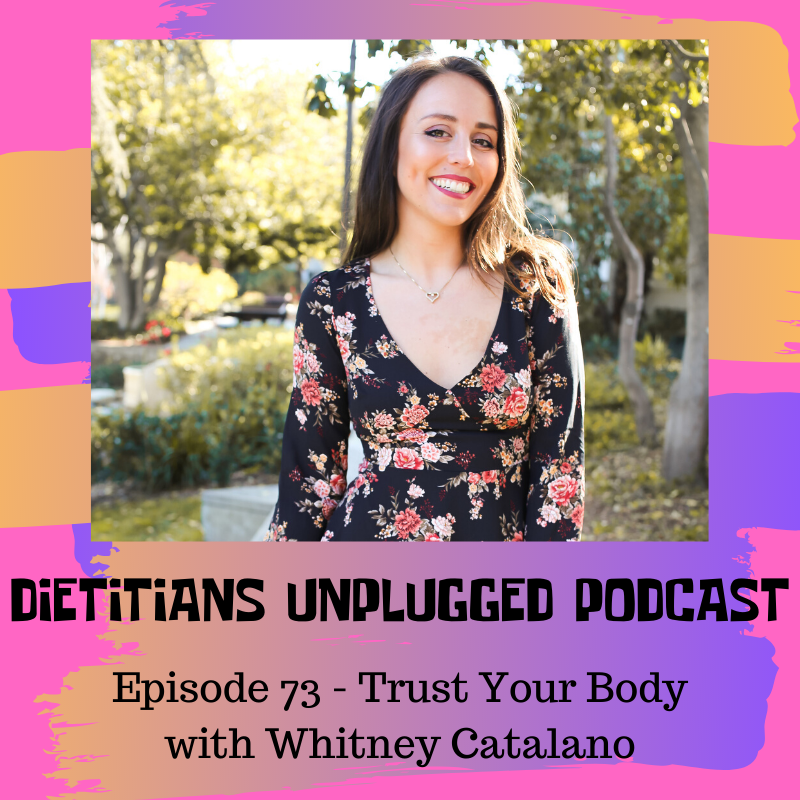
In episode 73 of of the Dietitians Unplugged podcast, Aaron Flores and I were joined by Whitney Catalano, RDN. In this episode, we discussed:
• What it means to learn to trust our bodies
• Tackling emotional and binge eating
• Dealing with the weight-stigma that can show up when visiting medical providers
Show Notes:
Learn more about Whitney Catalano
Listen on:
Subscribe and get my free guide:
Why you overeat …and what to do about it
Click here if you just want my newsletter!
Podcast
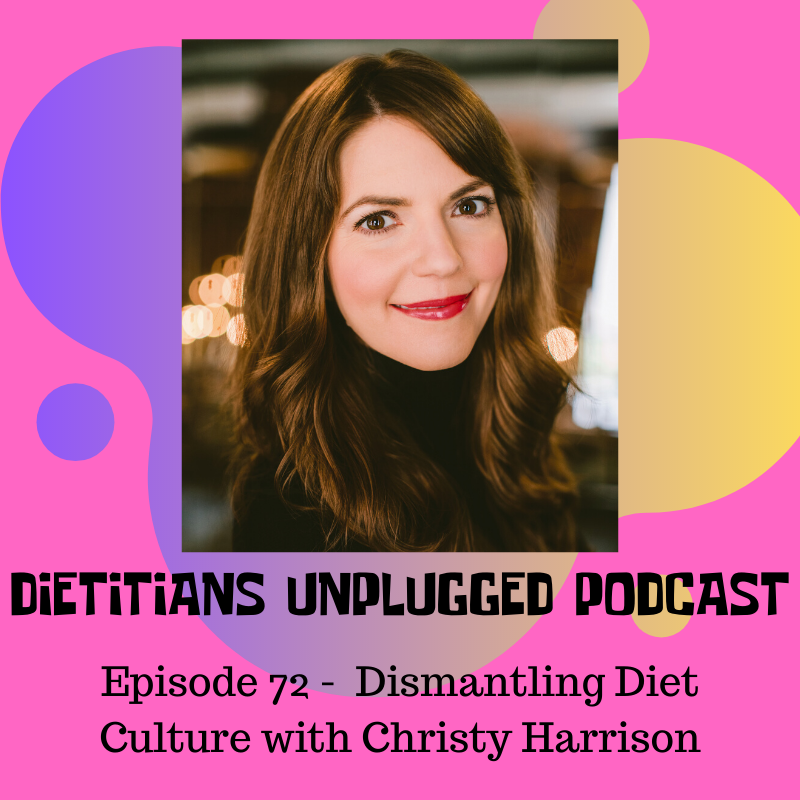
It’s the new decade and, unfortunately, humanity continues to be sold diet culture and weight loss as a remedy for all that ails us.
By now, however, a new theme has emerged. The collective wisdom the many who have ditched dieting has taken on a voice. Many of us are loudly saying, “No more. We know diet culture has harmed us.” We hear it in the growing tidal wave of size acceptance blogs and Instagram accounts and Facebook pages and newspaper and magazine articles that show up in our social media feeds.
This year I had the feeling that the non-diet message had hit a critical tipping point when I sat beside someone on a plane recently who, after seeing the newsletter I had been writing, asked if I was involved in the body positivity movement, and we had a fantastic conversation about how diets were awful and harmful and how learning to accept our sizes and eat normally were more fulfilling and life-affirming than trying to lose weight. Literal strangers are bonding everywhere over their rejection of diet culture!
One of the most prominent voices in this movement in the last few years has been Christy Harrison, MPH, RD, host of the podcast Food Psych and author of the excellent new book Anti-Diet: Reclaim Your Time, Money, Well-Being, and Happiness Through Intuitive Eating. We were excited to have her on the Dietitians Unplugged podcast to kick off the new year and decade and talk about how diet culture has got to go.
I’m such a Christy fan, and have been grateful to know her, starting with guesting on her podcast way back in 2015 (when I was still so green with podcasts). When we met at the BEDA 2016 conference, she was just as warm, friendly, funny and caring as you could imagine. On top of that, she’s a great writer and so knowledgeable, and to me, her book reads like a drama or a thriller, it’s just that damn entertaining (and as I am someone who demands to be entertained by my reading, that’s saying a lot).
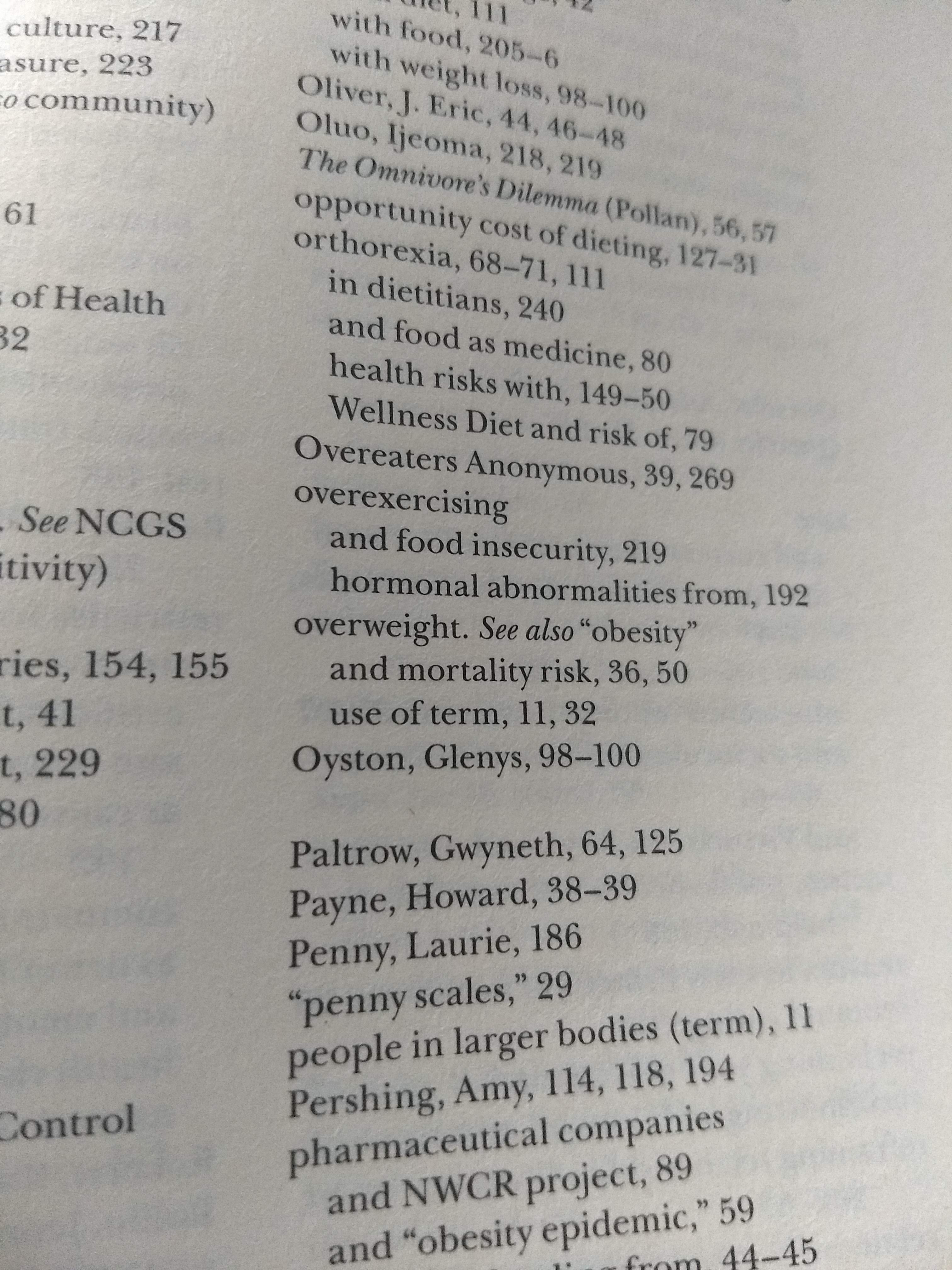
And…I got to be in the book! I discussed my time in the NWCR and experience with dieting, and it was a total thrill to be included alongside actual recognizable people in the index (yay Ijeoma Oluo and Amy Pershing; meh Gwyneth Paltrow). There are so many other wonderful colleagues I’m excited to share pages with in this book – it’s a total honor.
We can make harmful diet culture and fat-phobia things of the past. Read the book, listen to the podcast, spread the word. Live your awesome diet-free life in full view of everyone. It takes WORK to change the culture, and we are no strangers to work.

Show Notes:
Learn more about Christy Harrison
Book: Anti-Diet: Reclaim Your Time, Money, Well-Being, and Happiness Through Intuitive Eating
Get on the list for announcements: Self-Care for Diabetes
Listen on:
Get more Glenys:
I was honored to be a guest on Jennifer McGurk’s Pursuing Private Practice Podcast where I talked about overcoming imposter syndrome in building your business. Check it out!
Subscribe and get my free guide:
Why you overeat …and what to do about it
Click here if you just want my newsletter!
Podcast
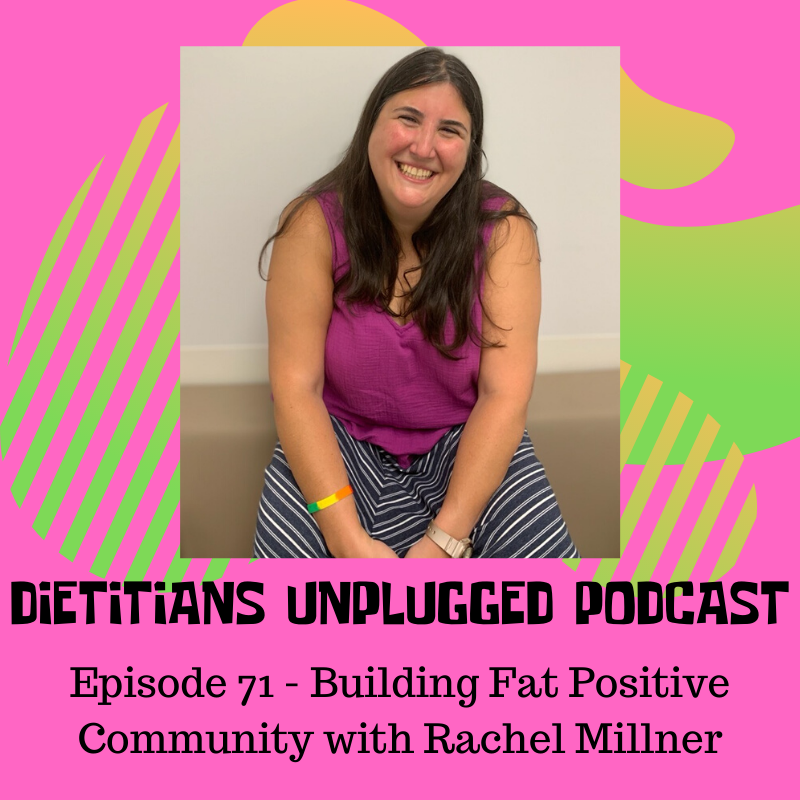
We are social creatures, and community is important. But when you are divesting from rampant diet culture and are in a larger body, how do you find community when so many people are spouting off about their current diets and body dissatisfaction?
On the Dietitians Unplugged podcast recently, we discussed this issue with our colleague, Dr. Rachel Millner. She shared with us her thoughts on the importance of fat-positive spaces for clinicians and individuals and how weight stigma continues to negatively impact those working on healing from their eating disorder.
Rachel Millner, Psy.D., CEDS-S, CBTP (she/her) is a psychologist/activist, a Certified Eating Disorder Specialist and Supervisor, and a Certified Body Trust Provider. Dr. Millner has been practicing as a psychologist since 2005 and has been specializing in treating people with eating disorders throughout her career. Dr. Millner works with people struggling with all eating disorders as well as those trying to break free from diet culture. Dr. Millner is a fat positive provider who works from a Health at Every Size® and Body Trust® lens.

Show Notes:
Dr. Rachel Millner’s website
Follow Dr. Millner on Instagram
Be the first to hear about the Self-Care for Diabetes program (Launching in early 2020)
Listen on:
Subscribe and get my free guide:
Why you overeat …and what to do about it
Click here if you just want my newsletter!
Podcast
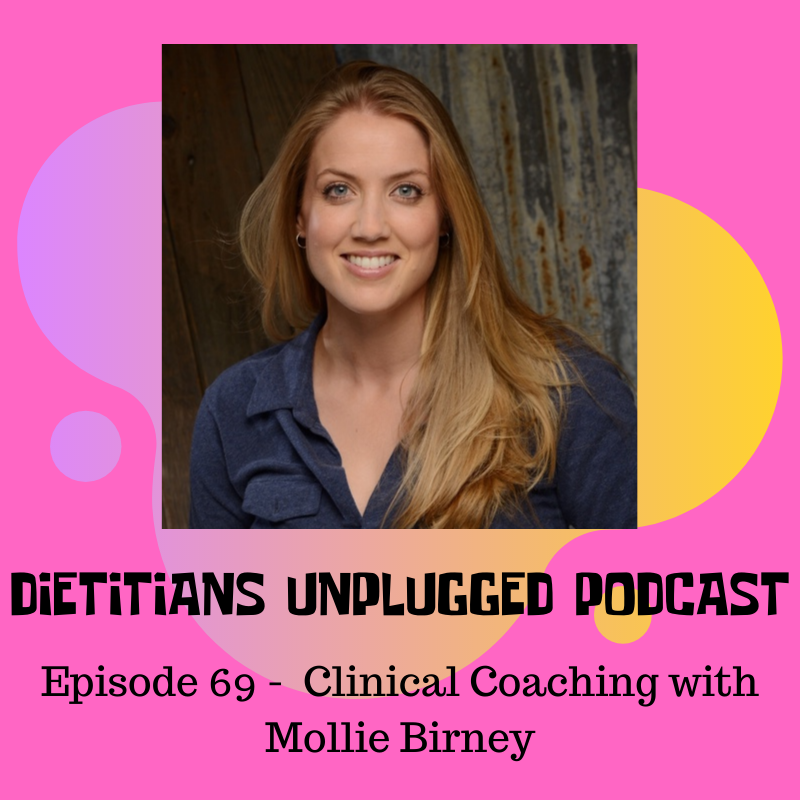
We welcomed Mollie Birney, Clinical Coach and Recovery Consultant with a specialization in the area of Eating Disorders and compulsive behaviors around food to the Dietitians Unplugged podcast.
Mollie holds a Masters in Clinical Psychology with a concentration in Addiction and Eating Disorders from Antioch University in Los Angeles, and has been in the field of mental health and addiction recovery since 2009. She has worked as a therapist with groups and individuals at all levels of care including inpatient, residential and outpatient treatment programs, as an interventionist for families in crisis, and as a private coach for high-performing individuals grappling with transitions and behavioral change. Her coaching style is deeply influenced by the principles of narrative therapy, and aims to arm her clients with strategies for challenging ingrained, and often trauma-informed belief systems. She has been in recovery from her own ass-kicking bulimia since 2007.

Show Notes:
Find out more about Mollie at her website: https://molliebirney.com/
Listen on:
Subscribe and get my free guide:
Why you overeat …and what to do about it
Click here if you just want my newsletter!
Podcast
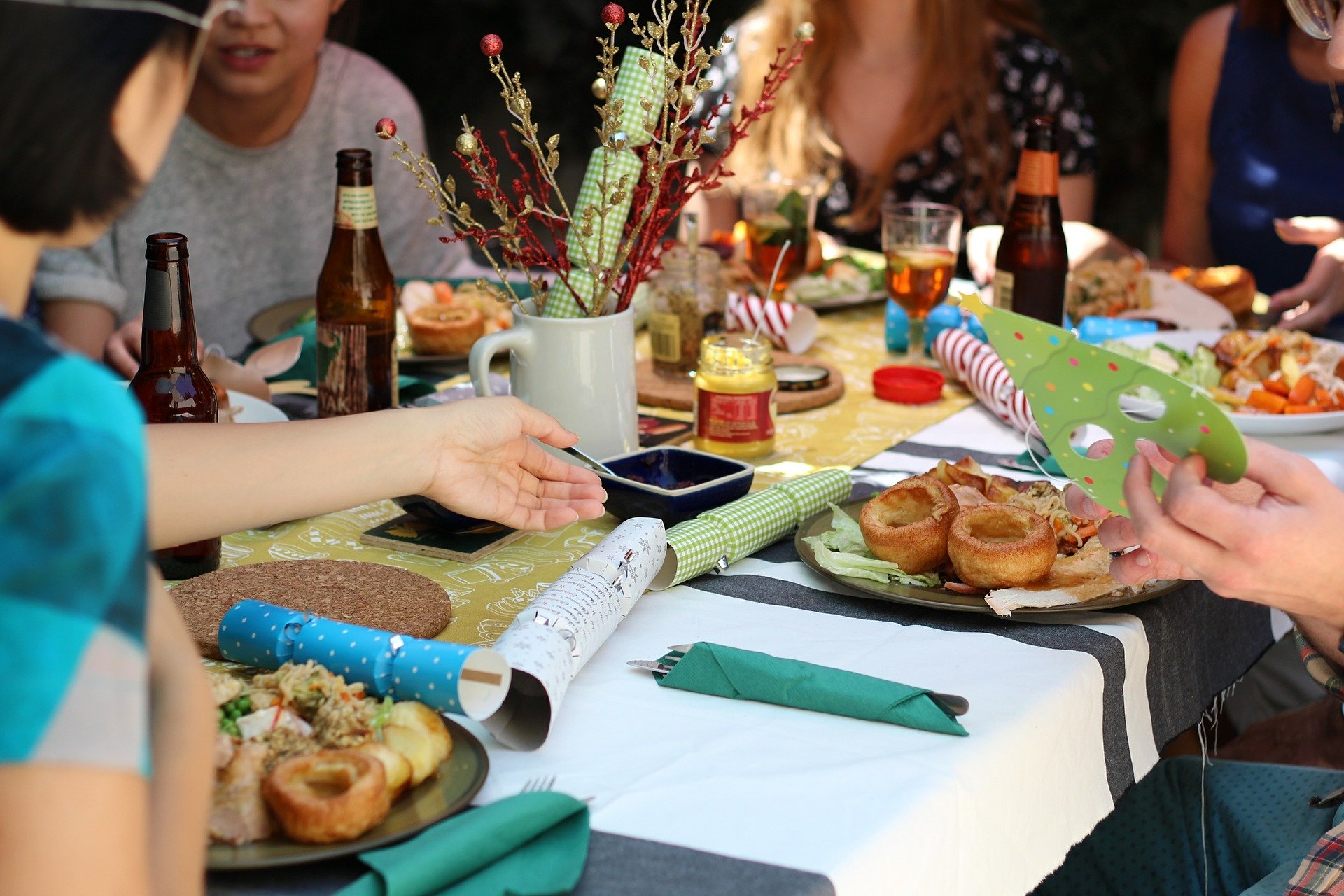
We’re in the midst of holiday season now, often a time when people who don’t have a peaceful relationship to food start to freak out a bit about eating.
Mainstream media doesn’t help, with its scare articles about avoiding holiday weight gain and how to not eat what you want at parties.
Within this type of diet culture, instead of enjoying the special food and company of friends and family in a relaxing way, we end up in fear and distraction. We play at restriction by trying not to eat the foods we want the most. But overeating might happen anyway – most likely because of that restriction mindset – and then we fall into the guilt-restrict-overeat cycle. This is a lousy way to spend the holidays!
The non-diet approach encourages you to approach eating in a different way. Sometimes accidental overeating happens, and that’s okay. Sometimes accidental under-eating happens and that’s okay too. No one is a perfect eater, nor should we be trying to be. The goal is peace with food, honoring internal cues most of the time, and not having constant worry about eating.
For those of you who are not in a place of peace with food just yet, Aaron and I created this Dietitians Unplugged podcast episode to help you on that journey. Get a mug of cocoa, take some deep, relaxing breaths, and have a listen.
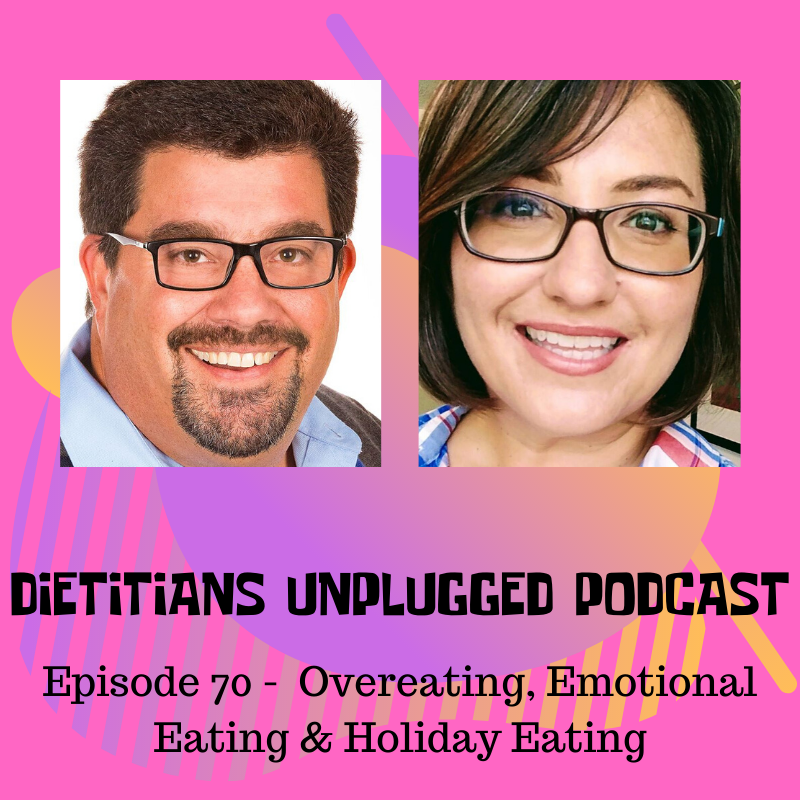
Show Notes:
Investigate the best seats on Seat Guru
Ragen Chastain has written about fat discrimination by airlines, and what can help
Listen on:
Start your path to normal eating with my free guide, 5 Strategies to Stop Overeating
Podcast
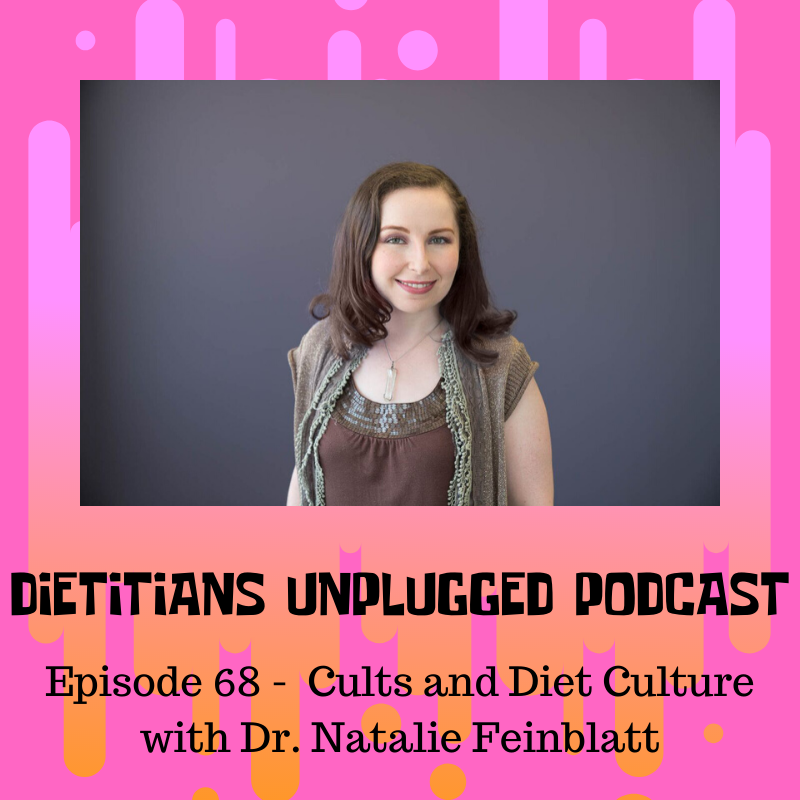
Did being on a diet ever feel like you were a member of a cult? Well, now we know there’s a reason for that!
In this episode of the Dietitians Unplugged podcast, Dr. Natalie Feinblatt, an expert in, among other things, working with former cult members, compares and contrasts cults with diet culture.
You’ll hear about what defines a cult, and how diets often align with these criteria. Most importantly, we discussed how to figure out if you’re in a diet cult and how to get free. (It’s hard for me to admit that this part was more important than our Days of Thunder discussion, but I’ll concede the point).
Dr. Natalie Feinblatt is a licensed clinical psychologist who sees clients in Los Angeles and virtually. She specializes in treating addiction, trauma, co-occurring disorders, LGBTQIA clients, and former cult members. She’s been working in the field of mental health for over 15 years at all levels of care, and earned her doctorate at Pepperdine University. You can learn more about her practice at her website, drnataliefeinblatt.com.

Show Notes:
Dr. Natalie Feinblatt’s website
Book: Diet Cults by Matt Fitzgerald
Listen on:
Subscribe and get my free guide:
Why you overeat …and what to do about it
Click here if you just want my newsletter!
